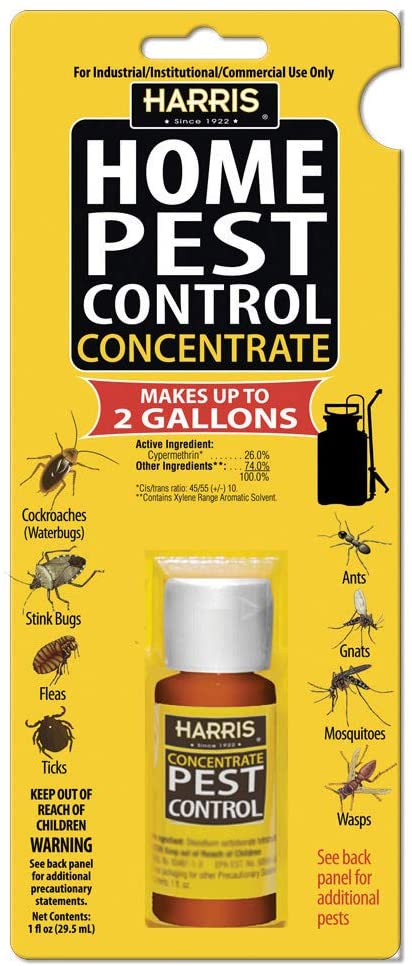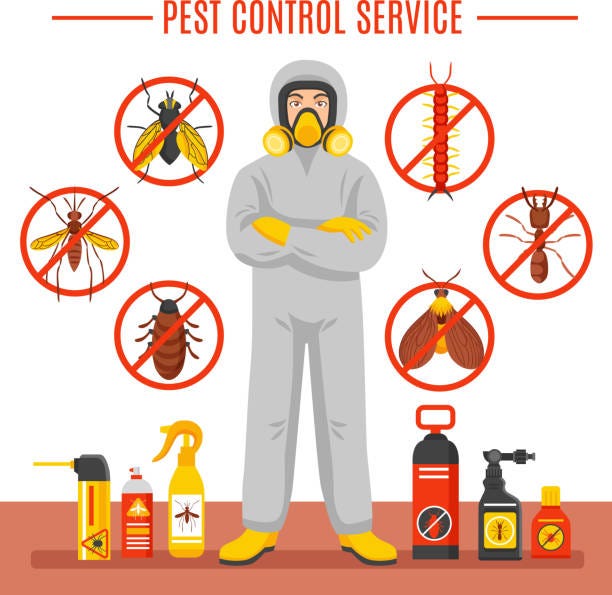A1 Bed Bugs Exterminator Portland - Rapid and Expert Service
A1 Bed Bugs Exterminator Portland - Rapid and Expert Service
Blog Article
Effective Insect Control Services: A Thorough Consider Extermination Techniques and Prevention Measures
In the world of insect control solutions, the effective monitoring of problems calls for a careful method that incorporates different techniques and actions for both obliteration and prevention. From Integrated Bug Monitoring (IPM) strategies that prioritize sustainable remedies to chemical elimination strategies made for targeted removal, the toolbox against parasites is vast and diverse. Organic control techniques and physical avoidance measures use alternate paths to effectively combating undesirable trespassers. Nonetheless, the key to a comprehensive pest control strategy lies not simply in the techniques themselves, but also in the thorough specialist inspection procedures that precede and inform them. By understanding the details of each technique and how they interaction, one can absolutely comprehend the intricacy and effectiveness of modern pest control services.

Integrated Bug Management (IPM) Approaches
Integrated Parasite Management (IPM) Methods encompass an extensive method to pest control that concentrates on tracking, prevention, and control methods to efficiently manage parasite populaces. By incorporating numerous techniques, IPM intends to minimize the influence of pests while also reducing the dependence on chemical pesticides. Avoidance exists at the core of IPM, highlighting methods like correct sanitation, upkeep of health, and sealing access points to discourage parasites from infesting structures.
Chemical Elimination Strategies
Chemical extermination techniques are frequently used in pest control solutions to efficiently eradicate pest populaces that pose a hazard to human wellness and residential property. These methods entail making use of different chemical materials particularly developed to target and get rid of insects such as bugs, rodents, and various other unwanted creatures. The application of chemicals, insecticides, rodenticides, and other chemical agents is very carefully managed to make certain optimum efficiency while reducing dangers to human beings, family pets, and the atmosphere.
Among the essential benefits of chemical extermination strategies is their capability to offer quick and targeted outcomes, making them specifically valuable in situations of serious infestations or urgent insect control demands - a1 pest control portland bed bugs. However, it is important to highlight the relevance of appropriate handling, application, and disposal of these chemical items to prevent unexpected harm
Furthermore, integrated bug monitoring (IPM) techniques typically integrate chemical elimination strategies with other approaches such as sanitation, environment adjustment, and organic controls to produce a sustainable and detailed pest control approach. By including chemical elimination methods judiciously within an IPM structure, insect control services can successfully take care of insect populations while decreasing possible threats to human wellness and the atmosphere.
Biological Parasite Control Methods
Utilizing natural killers and parasites to take care of insect populaces is a sustainable approach understood as organic pest control. a1 pest control portland bed bugs. One common biological control technique entails introducing all-natural enemies of the target insect types, such as ladybugs for aphid control or nematodes click for termite infestations.
Another reliable biological control approach is using microbial insecticides. These are normally taking place bacteria, such as infections, bacteria, and fungis, that especially target and contaminate particular parasite species. By using these microbial representatives, insect populaces can be successfully reduced without damaging beneficial organisms or triggering injury to the atmosphere.
Physical Parasite Prevention Steps
Carrying out physical bug prevention procedures includes utilizing obstacles and structural alterations to discourage insects from infesting a home or getting in. Mounting door sweeps, screens on windows, and sealing splits in the structure can aid stop pests like bugs and rodents from getting accessibility inside your home.
Another physical avoidance step is using obstacles like fencing to keep larger bugs such as raccoons or deer far from the property. Installing mesh or wire screens around yards can shield plants from being damaged by bugs. Appropriate waste administration, consisting of protecting garbage cans with tight-fitting covers, is necessary in deterring insects like rats, raccoons, and bugs. By implementing these physical pest prevention steps, home proprietors can dramatically reduce the danger of bug invasions and the damages they can trigger.
Professional Insect Evaluation Treatments
Performing systematic and thorough insect evaluations is a basic element of specialist pest management methods. Expert parasite inspectors are trained to meticulously take a look at residential or commercial properties for indications of infestations, determining pest species, entrance points, and favorable conditions. The evaluation process normally begins with a detailed assessment of both the inside and outside of the properties. This entails checking for bug droppings, nibble marks, nests, and any type of architectural damage that may indicate bug task. In addition, inspectors might utilize specialized devices such as moisture meters and borescopes to detect surprise invasions within wall surfaces or crawl areas.

Verdict
In final thought, efficient insect control services employ a range of techniques, consisting of Integrated Parasite Administration approaches, chemical extermination techniques, biological controls, and physical avoidance procedures. Specialist insect inspection procedures play a vital role in determining and resolving pest problems in a timely manner. By carrying out a mix of these methods, building owners can successfully avoid and manage insect infestations.
From Integrated Pest Administration (IPM) strategies that focus on lasting options to chemical extermination strategies made for targeted elimination, the toolbox versus parasites is large and multifaceted.Integrated Parasite Management (IPM) Approaches incorporate an extensive approach to pest control that focuses on control, monitoring, and avoidance methods to successfully handle pest populations.Chemical elimination techniques are generally employed in parasite control services to successfully remove pest populations that pose a risk to human health and go to these guys wellness and building.Utilizing natural killers and parasites to handle bug populations is a lasting method known as biological bug control.In final thought, effective insect control services use a variety of strategies, including Integrated Insect Administration techniques, chemical extermination techniques, biological controls, and physical prevention steps.
Report this page